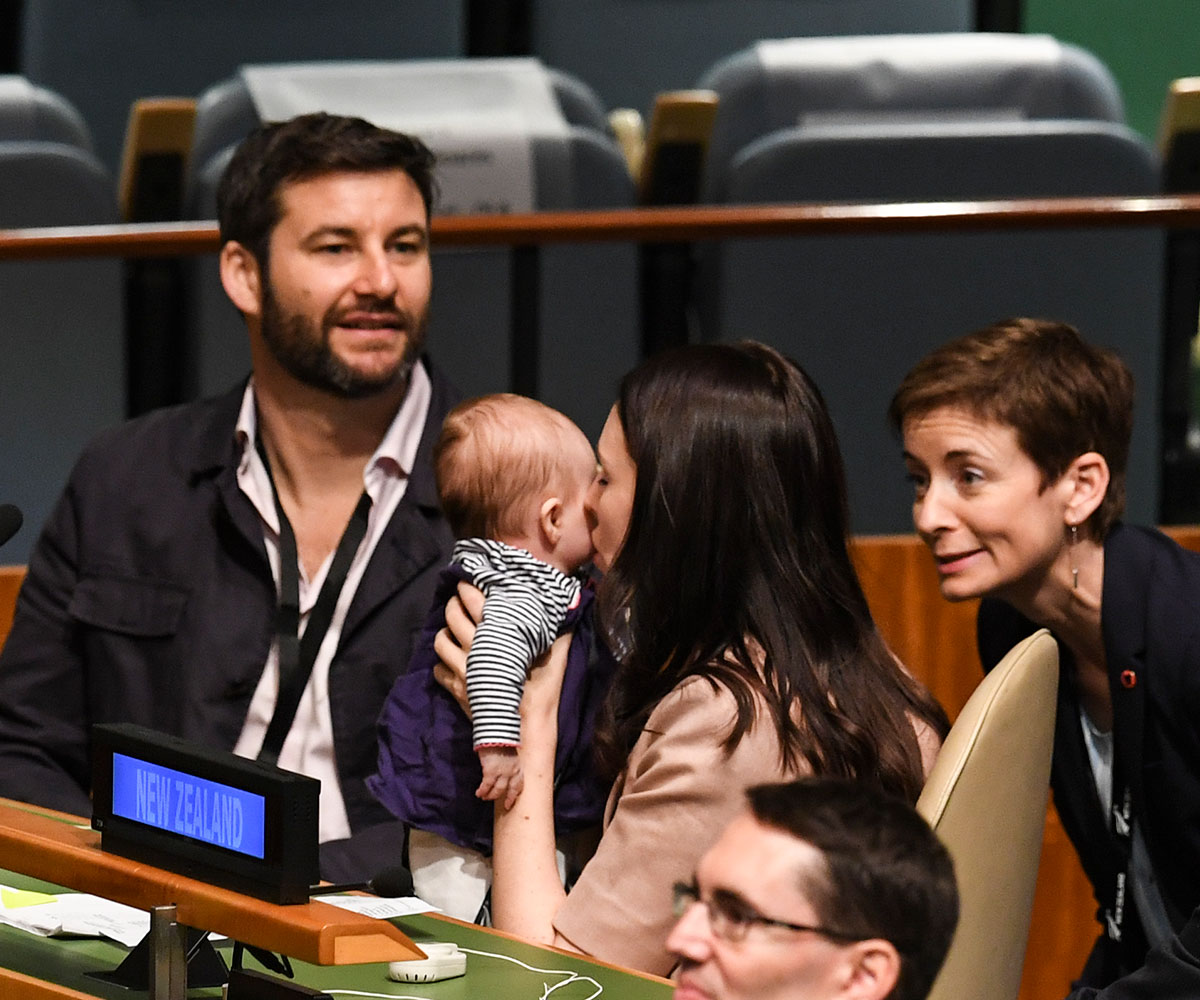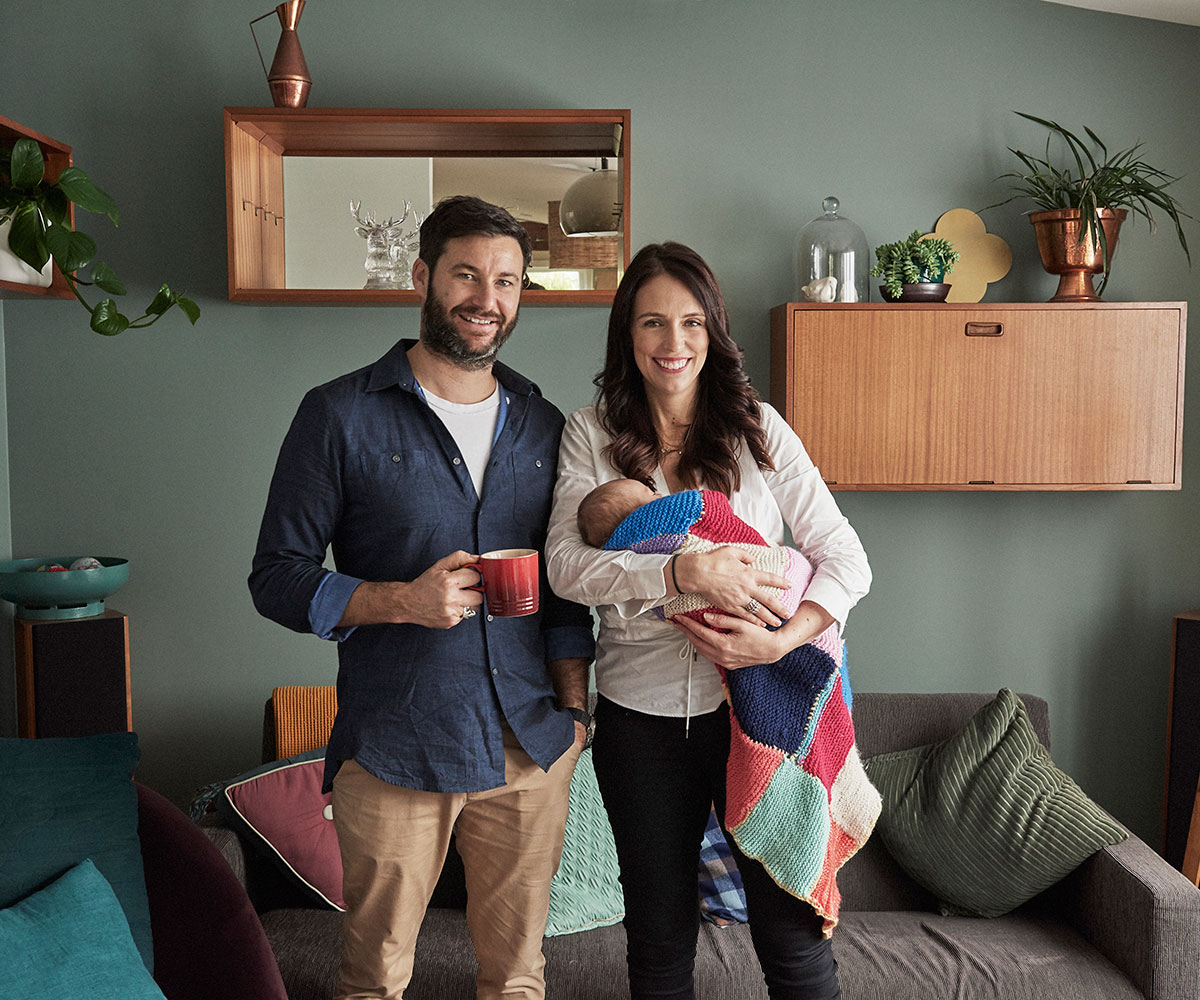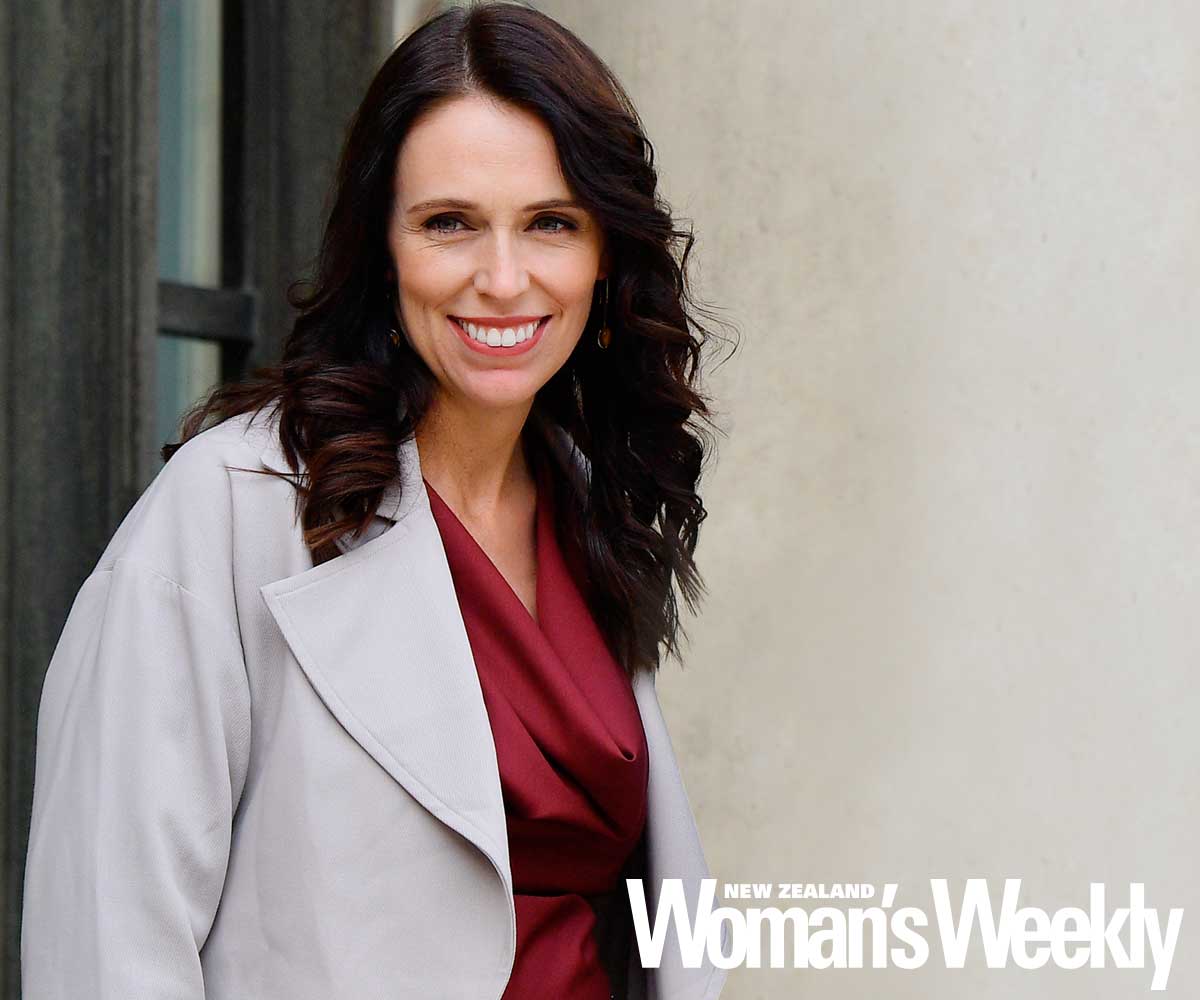The world can’t get enough of our Prime Minister and her little family. From the moment Jacinda Ardern announced she was pregnant with baby Neve, the global fascination has only gathered momentum.
This week she made history by becoming the first world leader to bring a baby to the General Assembly of the United Nations in New York. Three-month-old baby Neve, who had her own fake security pass in which she was titled “New Zealand First Baby”, was brought in by Ardern’s partner Clarke Gayford, and quickly surrounded by cooing world leaders – once her mum had given her a kiss.
Ardern told CNN‘s Christiane Amanpour afterwards that she hadn’t known Neve was going to be there.
“I was speaking and came down from the podium to find that she was there on the General Assembly floor. It was just delightful to see her there, I expected that she might be in another space. But probably what it speaks to is the fact I am still breastfeeding. I have Neve near me most of the time. It’s not always obvious that she’s in close proximity to me most of the time.”
Why – are you hoping to inspire working mothers?, Amanpour asked.
“I want to normalise it,” Ardern said. “And I do think that if we want to make our workplaces more permissive… more open then we need to acknowledge that there are logistical challenges that come with that…
“I hope that, in part, just by being a bit more open, which I accept brings vulnerability… it might create a path for other women.”
She said she also hoped there would come a time when a world leader having a baby wouldn’t be headline news.
Amanpour commented that it must be important to Ardern’s work that partner Clarke Gayford is able to be Neve’s main caregiver and Ardern told her, “What I consistently acknowledge is that I’m not doing anything special in the sense that actually I have a lot of… help.
“The fact that Clarke has the ability to juggle his career and also be our primary caregiver makes all of this possible. But what has struck me the most is from the moment we announced the way that we would make things work, the number of men and women who have said ‘we did exactly the same thing’.
“There isn’t a lot of discussion about something that has been happening over a number of decades, and we need to normalise that too.”
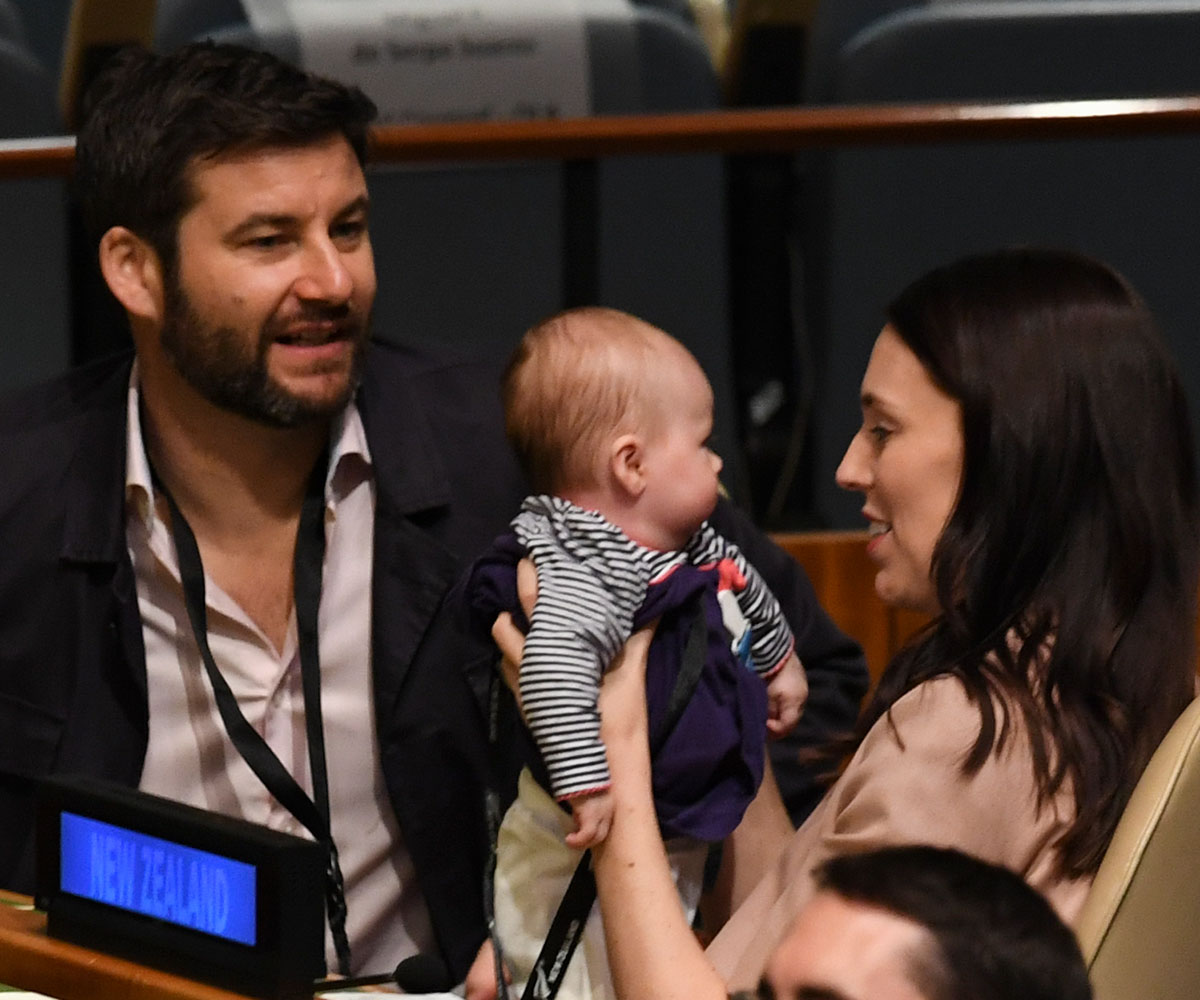
Amanpour said she has been amazed with New Zealand being the first country in the world to give women the vote, Ardern has still faced sexism from Kiwi media, with journalists questioning whether a new mother could face questions about refugees and climate issues.
“And yet I don’t feel still that there’s the environment where you’re able to openly challenge that,” Ardern stated. “Lest you be seen to be, in any way, claiming that the criticism isn’t justified or that you show any weakness. We should be open to criticism, we should be open to be challenged in the same way all our counterparts are and I accept it and I encourage it. It means we have a robust democracy. But it becomes tricky if you try and partition off what might be seen as sexist criticism and so to be honest I just don’t engage. The best way I can rebel against those notions is just by being a competent leader and good at my job.”
Ardern, whose aim is to lead a government that is “both strong and compassionate”, went on to say that she still felt New Zealand was “incredibly progressive”.
“I am the third female Prime Minister. I never ever grew up as a young woman believing that my gender would stand in the way of me being able to do anything that I wanted and I credit New Zealand for that. I credit… those women that went before me.”
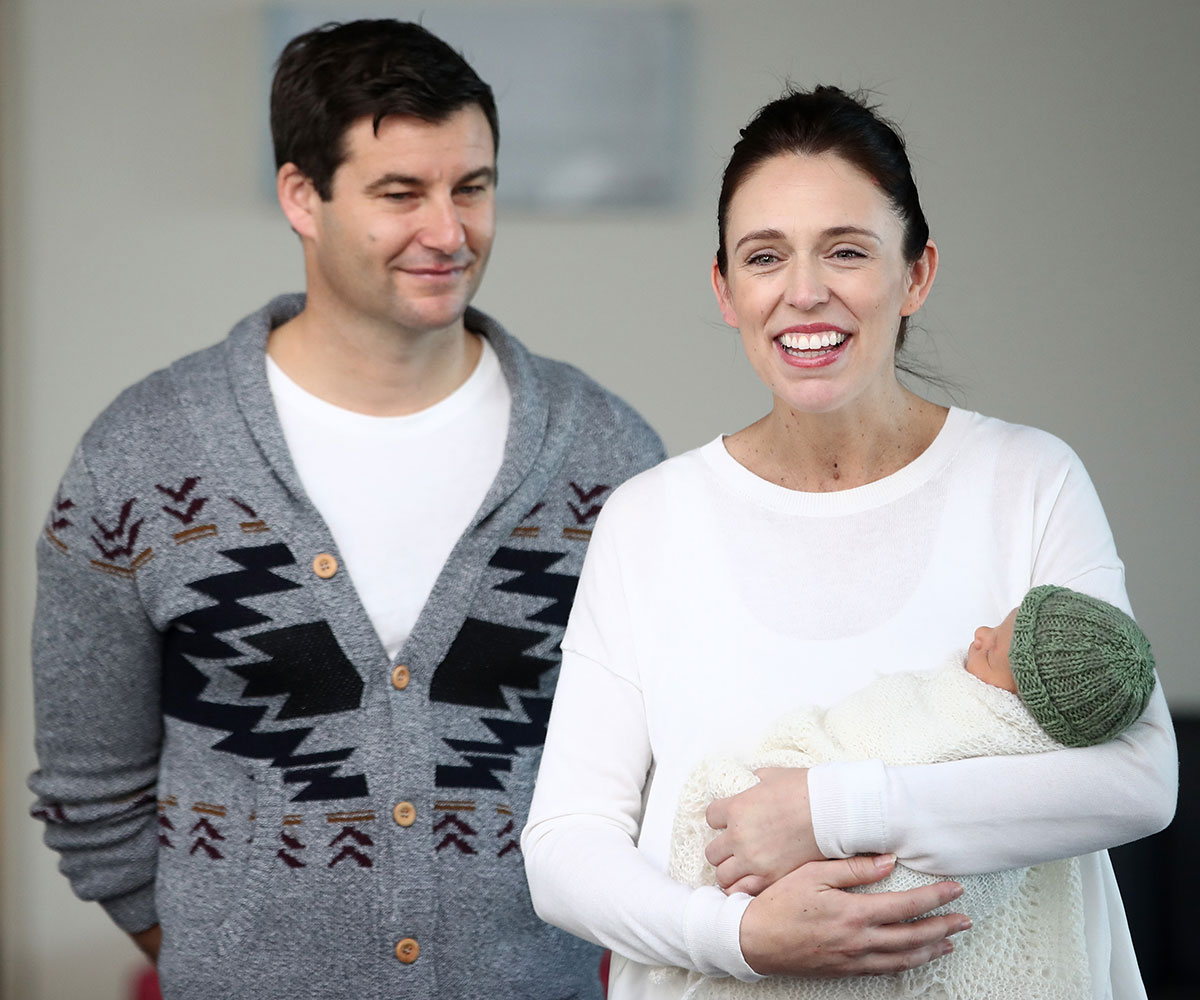
Jacinda Ardern and Clarke Gayford introduce baby Neve to ‘the village’ as they leave Auckland Hospital.
She also credited New Zealanders for being welcoming of the fact she was going to be in office with a child. “The positivity far outweighed any negativity.”
Only a week ago, in celebration of 125 years of women having the vote in New Zealand, Ardern told a gathering at the The Banquet Hall at the Beehive that it was important to celebrate all women in New Zealand.
“We talk about our first female cabinet ministers, our first female MPs, but what about our other women who are extraordinary,” she asked.
“Our women who are extraordinary in their day-to-day lives, the sole parent, the teen mother, the woman who gets up every day and cares for her parents, her children and then goes off to low paid work. What about our extraordinary women who see themselves as ordinary women.”
She said we owe it to all women in New Zealand, and particularly those who are in low-paid work or who suffer at the hands of domestic abuse, to continue to make progress and carry on the work of our suffragettes. Women have a right to feel safe and valued in their homes and in their workplaces, she said. They also had a place in parliament and she hoped to raise the number of women in Parliament from 38 per cent to 50 per cent.
She finished with a quote from Kate Sheppard, “Do not think your single vote does not matter much. The rain that refreshes the parched ground is made up of single drops.”
“Let’s make it pour,” she finished.
Watch Jacinda Ardern’s interview with CNN’s Christiane Amanpour here:
